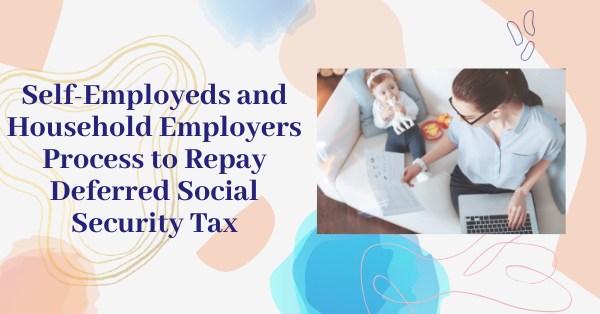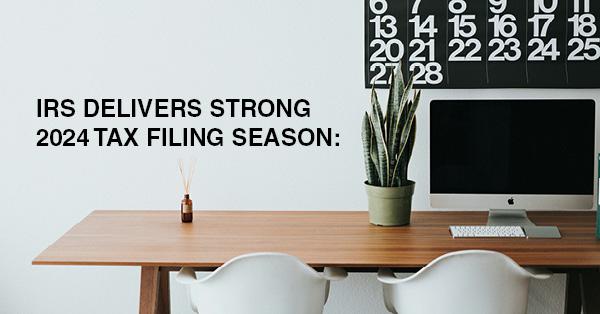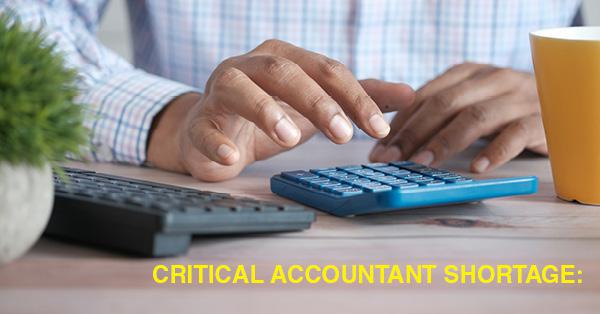Self-Employeds and Household Employers Process to Repay Deferred Social Security Tax

IRS has set out how self-employed individuals and household employers should make payments of social security taxes that they deferred under a provision of the 2020 Coronavirus Aid, Relief, and Economic Security Act. It has also provided instructions for taxpayers who are unable to pay the full amount by the due date.
How to pay the deferred tax. Individuals can pay the deferred amount any time on or before the due date (one-half by December 31, 2021, and the balance by December 31, 2022). They:
- Can make payments through the Electronic Federal Tax Payment System (EFTPS) or by credit or debit card through IRS.gov, or with a money order or a check.
- Should separate payments from other tax payments to ensure they are applied to the deferred tax balance on the tax year 2020 Form 1040 since IRS systems will not recognize the payment for deferred tax if it is with other tax payments or paid with the current Form 1040.
- Should designate the payment as "deferred Social Security tax."
Individuals making deferred Social Security tax payments in EFTPS should select "1040 US Individual Income Tax Returns," then "deferred Social Security tax" for the type of payment. They must apply the payment to the 2020 tax year where they deferred the payment. Taxpayers can visit EFTPS.gov for details.
The EFTPS system specifies how taxpayers are to indicate that their payment is for these deferred taxes, the IRS websites for payment by credit card or debit card do not provide any similar instructions. And, IRS has not created any form or voucher to be sent with any check or money order that is used to pay the deferred taxes; so, it would appear that IRS wants taxpayers to write the "deferred Social Security tax" on the check/money order itself.
Individuals who are unable to pay the full deferred tax amount should pay whatever they are able to pay by the installment due dates to limit penalty and interest charges. If the installment amount is not paid in full, IRS will send the taxpayer a balance due notice. Taxpayers are to follow the instructions on the notice to make a payment or apply for a payment plan. They can also visit the Paying Your Taxes page on IRS.gov for additional information about ways they can pay, what to do when they cannot pay, and viewing their tax account.




